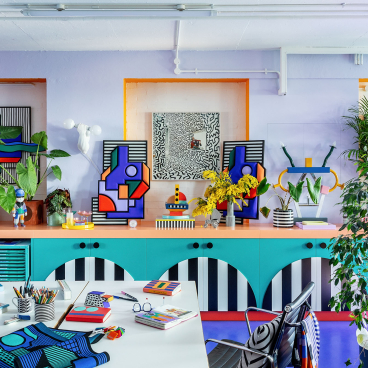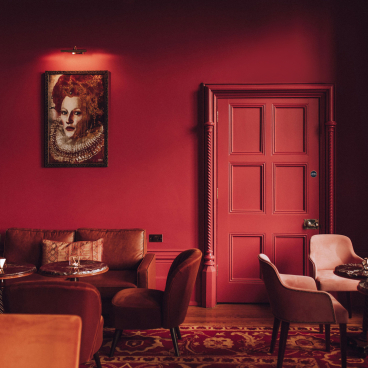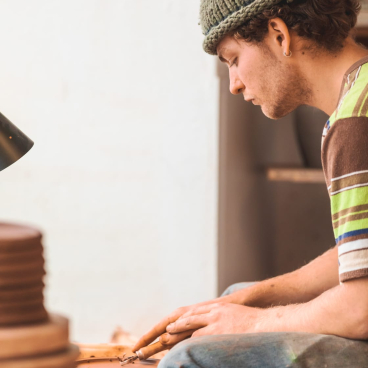Interview: The New Materialist's Baptiste Arribe & Thomas Vailly on their latest bio-based venture.
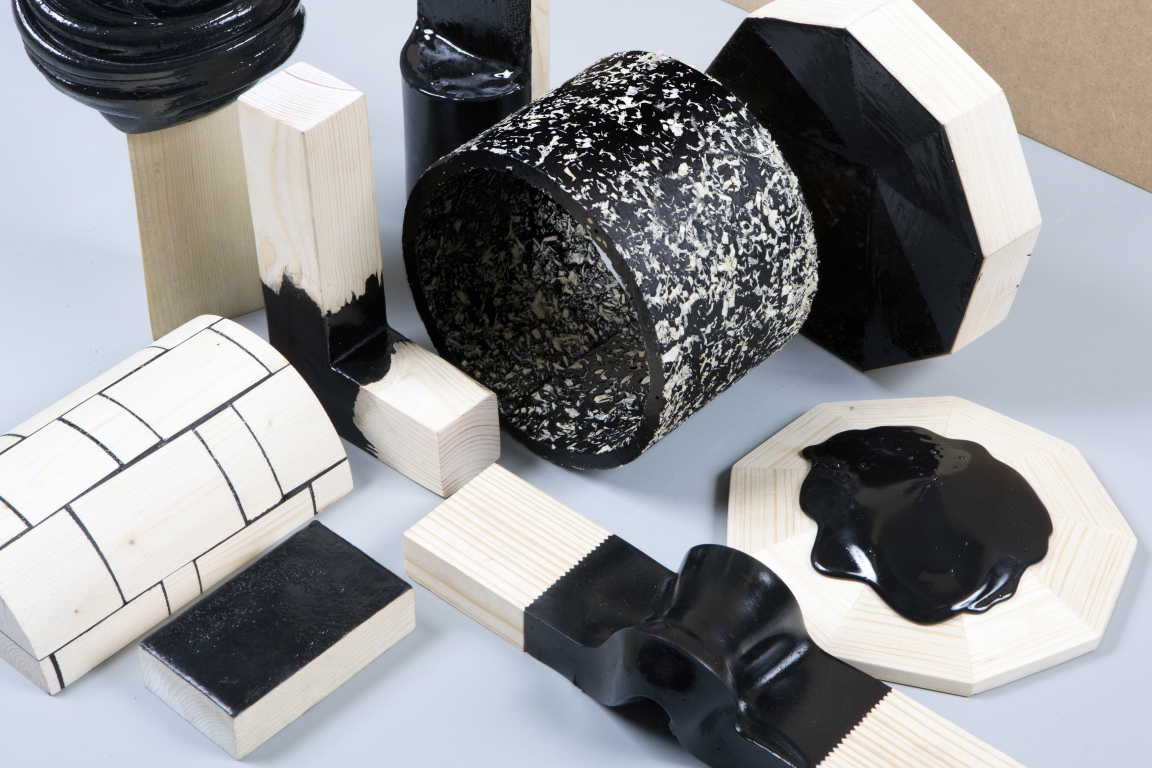
Reconfiguration of a Tree
The old saying "two heads are better than one" certainly seems to apply to innovation. And when it comes to innovation in the built environment, bio-based material solutions are certainly about as inventive as it gets.
With this in mind, we spotted that Thomas Vailly, a discerning bio-based thinker with extensive experience in exploring the materiality of wide ranging waste-streams (and one of our Top 23 biomaterial designers to watch in 2023) had joined forces with fellow trailblazer, Baptiste Arribe, to found The New Materialist, combining design and engineering to develop regenerative materials and productive ecosystems.
Just a glance at the duo's LinkedIn profile is enough to ignite a spark in anyone with creative intent. Us, very much included. Here, we chat to Baptise and Thomas to find out more about what it means to be The New Materialist, and how that influences the future of commercial interiors for the better.
Firstly, what is The New Materialist?
"The New Materialist is a venture that combines design and engineering to develop regenerative materials and productive ecosystems. We, Baptiste and Thomas, dive into the entanglement of matter and meaning to create materials that are innovative, sustainable, and when produced have positive impacts on nature and communities."
How did it come about?
"Citizens want corporates to act for nature and the future. It is not the time of exploratory projects any more - full scale change is expected. The New Materialist has been founded to help brands in finding a regenerative pathway. We act from material design to full scale production of both materials and regenerative effects."
What are your backgrounds, Baptiste and Thomas?
"We are old friends, we both explored different pathways in life but remained committed to what matters most. Thomas comes from a design background, with a focus on emerging materials. Baptiste has a background in management of innovation, new business models and systems transformation. Both of us have honed our expertise through various projects and collaborations."
What types of materials/products have you developed so far?
"We have developed a wide range of materials, including those made from agricultural by-products, papers, cardboards, bio-based / biodegradable plastics but also plastic made from human hair. What we love to do is to design tailor-made materials for specific brand universes: we explore the available by-products, strip them and design exceptional materials from them."
You work with the likes of LVMH & Lancome - both global brands. Do you think biomaterials are being considered by a larger commercial audience than ever before?
"Absolutely, biomaterials are gaining traction among global brands as they seek more sustainable and innovative solutions. The blend of functionality and environmental responsibility that biomaterials offer is becoming essential in contemporary industry practices. There is also tension on various supply chains and the industry is looking at local alternative sources of raw and semi-finished materials. It’s an opportunity."
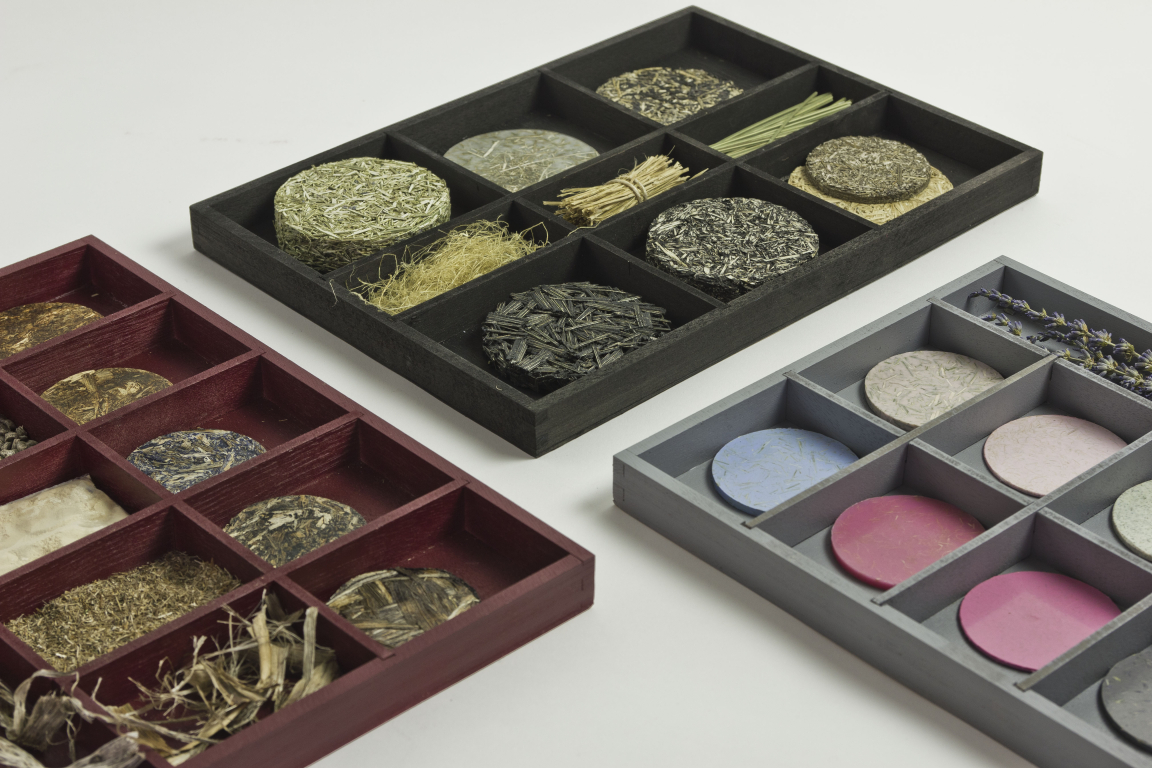
Exploration
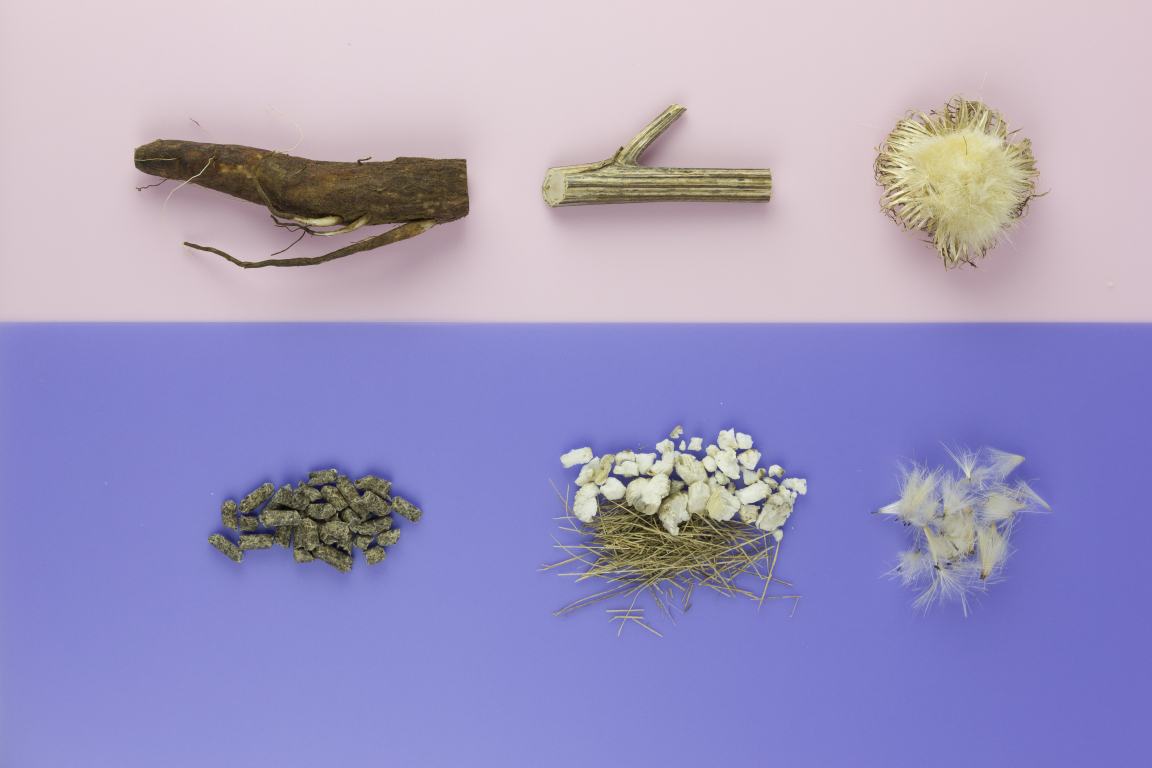
Inspiration
Where do you source your materials?
"Our materials are sourced within a specific context given by our clients. We prioritise using agricultural by-products and waste materials. Through extensive research and collaboration, we ensure that the materials are sustainable and contribute positively to the ecosystems they come from."
And how easy is it to get what you require?
"Sourcing materials sustainably is a complex but fun process. We are explorers. It’s like a treasure hunt. It requires a deep understanding of supply chains and industrial process. It's also about collaboration with local communities, producers and farmers. However, it’s essential for creating regenerative materials that hold true to our philosophy."
Sourcing materials sustainably is a complex but fun process. We are explorers. It’s like a treasure hunt.
Currently, biomaterials are being developed by individual designers or collectives, such as yourselves. Do you think it will be/should be possible for bio materials to be produced on a mass scale in the future?
"We don’t believe in individual innovation. We have to create a wide network of suppliers, experts, producers and clients that support us in our endeavours. We are not interested in doing it alone. And it won’t work. Mass production of biomaterials is feasible and necessary for a sustainable future. However, it's critical that scaling doesn't compromise the regenerative principles. Proper systems, collaborations, and mindful innovations are essential for mass production to be sustainable."
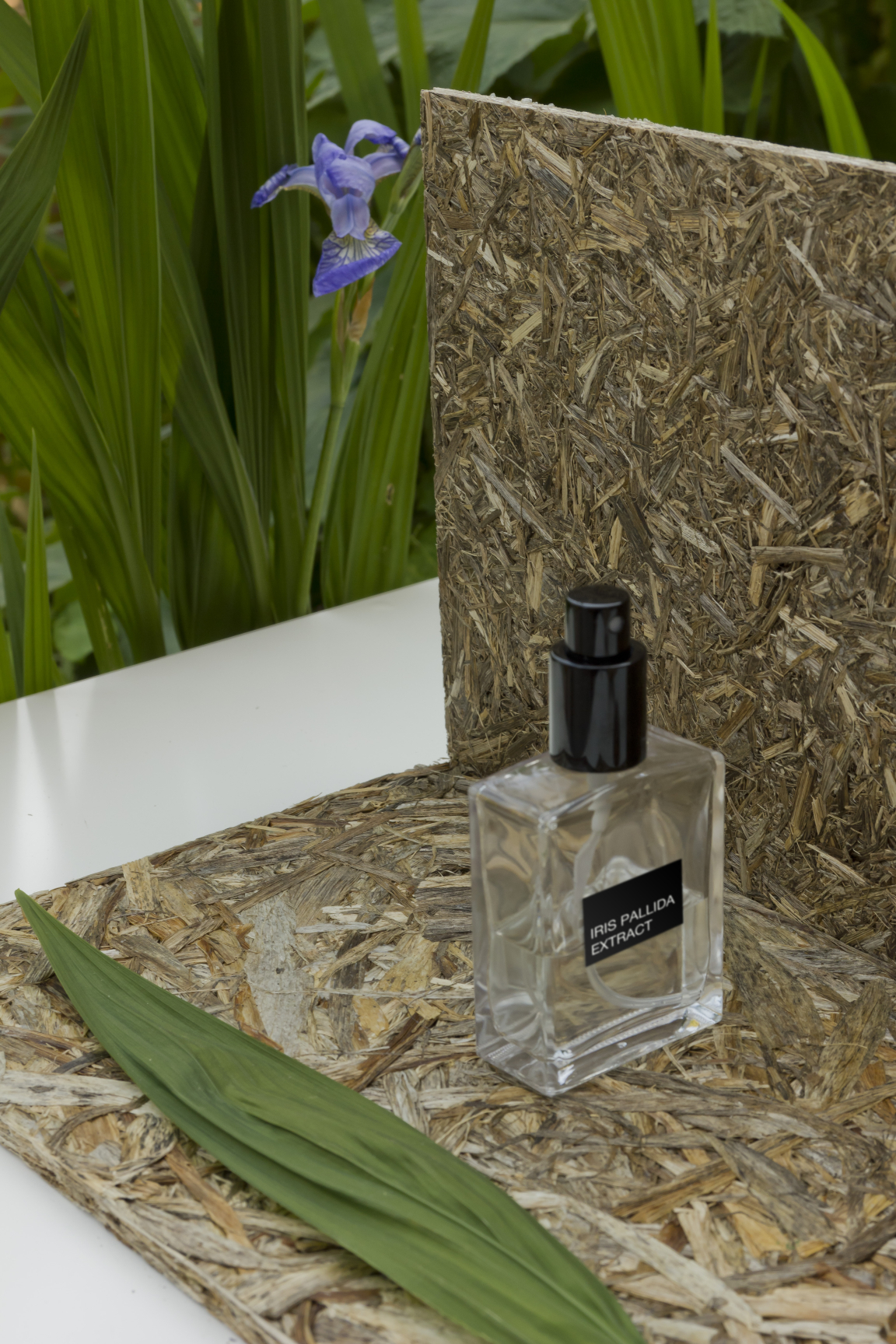
Iris Lancome
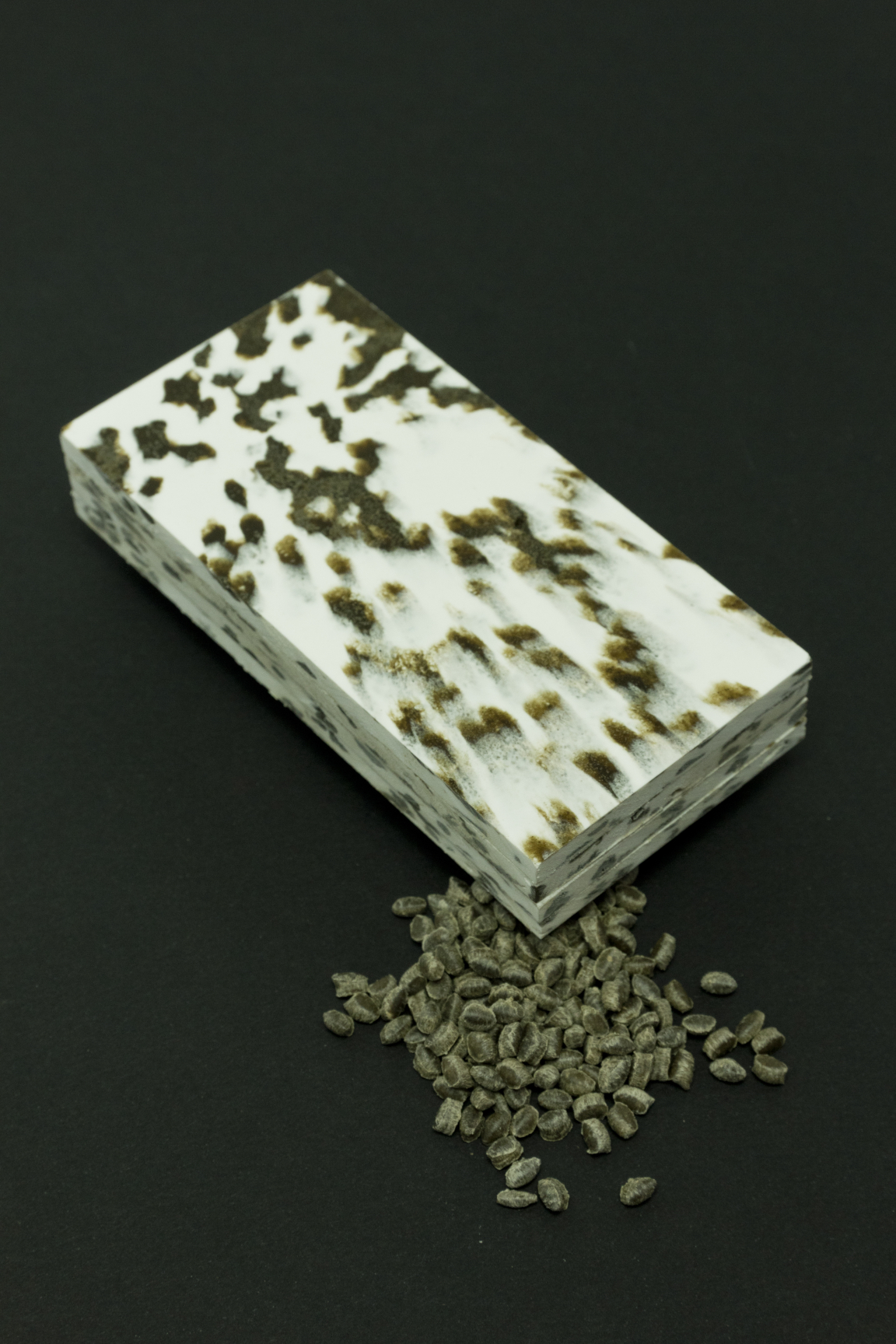
Waste Water material
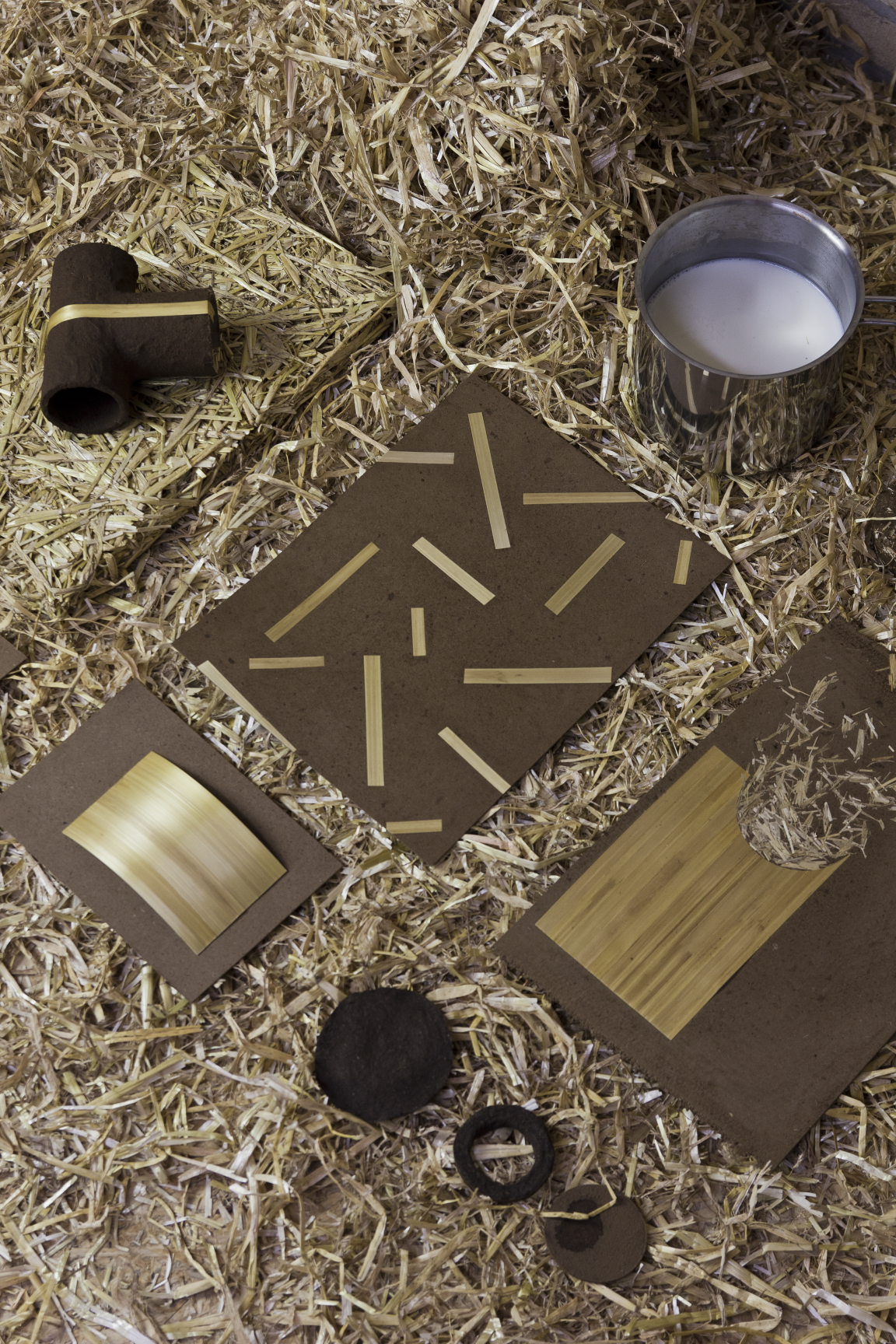
Small Farm
What’s your favourite biomaterials project – either your own or someone else’s – that you’ve seen this year?
"Honestly, we are super excited about what we are currently working on for a French luxury brand. Other than that there are so many exciting material innovations that it is hard to pick one. It also depends on the context."
What are you working on now?
"We are currently engaged in several projects, each of them are about developing tailor-made material innovations for clients and setting up circular supply chains to release these materials to the market.
"We have a few in-house innovation projects mostly exploring the potential of natural fibres and thermoplastic starch. Basically extruding giant bioplastic plaster. Our hands-on material research in our workshop is still a core part of our activities."
And what’s next for The New Materialist, and the future of biomaterials in general?
"The New Materialist aims to keep pushing the boundaries of material innovation, fostering collaborations, and contributing to systemic shifts towards sustainability. For biomaterials, the future is ripe with possibilities as they become central to industries seeking sustainable and innovative solutions."



